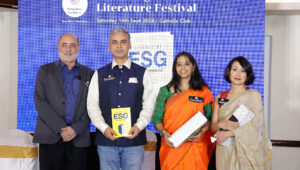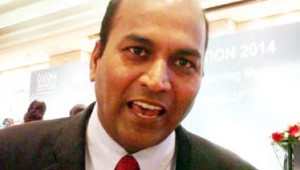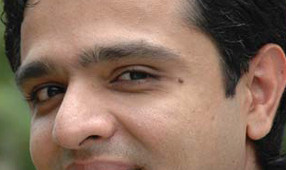 Azim Jamal offers simple practices and techniques gathered from his interpretation of Sufism and his life experiences for inspired living in his new book ‘Business, Balance & Beyond’
Azim Jamal offers simple practices and techniques gathered from his interpretation of Sufism and his life experiences for inspired living in his new book ‘Business, Balance & Beyond’
When self help books by prominent authors are dime a dozen, how does this book stand out?
Having spoken to more than 1 million people across the globe, many of who are senior executives, I have discovered a startling fact – that many of the successful executives are struggling to find happiness, balance and significance.
Many still feel that if you choose the road to material success then, you’ll need to give up your dream for spiritual fulfillment and vice versa. There seems to be kind of a scarcity consciousness model at work which forces people to assume that you need to choose one at the expense of the other. And this choice invariably leads to discontent. I have encountered many top CEOs or leading professionals in the field admitting that they feel empty or disconnected with life in spite of becoming a huge success in their professions.
A leading Sufi thinker and author, Hazrat Inayat Khan says, “There are two aspects of individual harmony: the harmony between body and soul, and the harmony between individuals. All the tragedy in the world, in the individual and in the multitude, comes from lack of harmony. And harmony is best given by producing harmony in one’s own life. ” With Business, Balance & Beyond, I have tried to break down this invisible barrier between choices and invoke a sense of harmony in life. Just like you cannot choose sides of a circle, in life as well, there are a multitude of aspects which provide joy and meaning to life, including your work, family, friends and your life purpose. Choosing only one to the exclusion of others will invariably lead to a lopsided approach to living. All of them are needed to bring about a holistic sense of fulfillment.
By using the word Sufi – do you intend to bring in the Asian element in an executive/entrepreneurs’ life?
Wisdom cannot be limited to the realm of geography or time. In fact I am constantly humbled by the amount and depth of knowledge and wisdom we have available from across the world. Right from a plethora of books to simple experiences with individuals in daily life, all carry the kernel of truth and wisdom within them. To limit myself to the interpretation of only one school of thought would be a great disservice to others and myself. When I use the word Sufi, I refer to an individual, a person who is not limited by time or place. A person who goes with the flow, lives in the moment, but without compromising the essence of his beliefs. For me Sufism represents an ideal of how we can all maintain a spiritual and ethical center while still pursuing our worldly goals. So though the root of the word owes itself to its Asian origin, its interpretation and application is universal.
There are lots of self-help business books and many gurus to help executives today – how can executives/entrepreneurs bridge the knowledge and execution gap?
The most powerful word though often ignored, is Action. You can read a hundred self help books and memorize numerous quotes. But without action, they are mere rhetoric. Action can bridge the gap between knowledge and execution. Often people are intimidated or hesitant to take decisions and thus give up even before starting. My advice here would be to start by taking baby steps. Martin Luther King, Jr. said, “Faith is taking the first step even when you don’t see the whole staircase.”. Taking the first step alone will set the ball rolling and change will start to happen, however small.
What’s the current trend in global and Indian approach to work from spiritual perspective – are we heading in the right direction?
I think people are slowly but steadily realizing the interconnectedness of the web of life. People understand that if they are able to give and make a difference in the lives of others, their own lives become useful, worthwhile and happy. Unconditional giving creates abundance in our own lives. Because the more freely we give, the more we will have. And when we stop giving, we stop receiving. There are many ways of giving – we can give our time, thoughts, wealth and guidance. For instance, even the Internet can serve as a good example of unconditional giving. Access to free resources, information, knowledge, new ideas like crowdsourcing or crowd funding are all examples of giving. So the new definition of work is now much more evolved than simply completing your set hours and taking your salary home. People are increasing inspired by the idea of making a difference with their work, of creating an impact in the lives of others and for themselves.
Also I feel that, more and more people are acknowledging the fact that taking one narrow approach in life, is merely limiting your opportunities and possibilities for transformation. Then whether its organizational or individual transformation, all roads are converging together. In fact, the heartening thing I notice while working with organizations is that more and more younger people are exceedingly aware and conscious of this change.
Although there has been good progress, however, the reality about the world and India is that we are far from the ideal situation. Despite the progress that I have shared, the world and India is still operating less on spiritual and giving principles and more on wealth and materialism.











Recent Comments